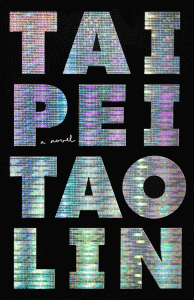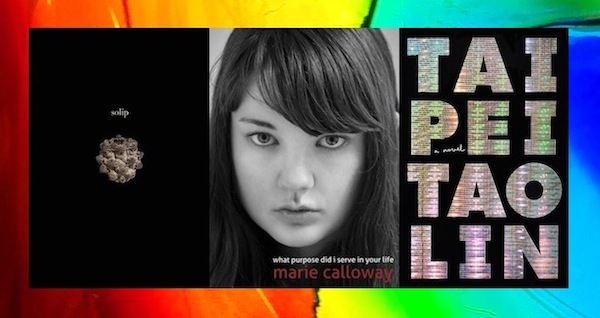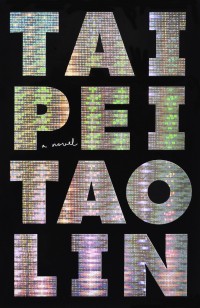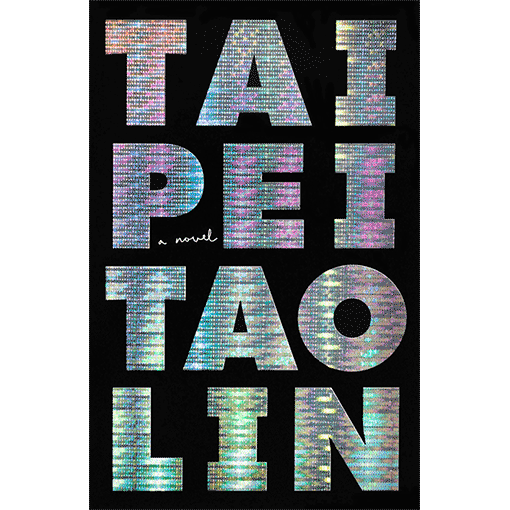On Tao Lin’s Taipei
 Taipei
Taipei
by Tao Lin
Vintage, June 2013
256 pages / $14.95 Buy from Amazon
Tao Lin is a writer whose novels, short stories, poetry, and essays have won many admirers, and inspired what seems like an equal amount of detractors (it’s a conversation being energetically carried out on the Internet, for the most part). His recent novel, Taipei, is his most publicised book. It’s about a young writer living in Brooklyn who ingests lots of illicit and non-illicit drugs, uses his MacBook to ‘work on things’, goes on a book tour, visits his parents in Taipei, ingests more drugs, and tries to connect with people.
Though I’d come across bits and pieces of Tao Lin’s writing online, my response was emphatic in neither a positive or negative direction, and it would hardly constitute a bias. The thrill, therefore, I got from reading the first sentence of Taipei was pure, and due as much to my having an immediate feeling as it was to the sentence being good. I’ll reproduce it here, for the pleasure of doing it, and possibly to annoy anyone who doesn’t agree with me: It began raining a little from a hazy, cloudless-seeming sky as Paul, 26, and Michelle, 21, walked towards Chelsea to attend a magazine-release party in an art gallery. As far as sentences go, it’s accessible, controlled, and idiomatic. Its tone, too, is consistent throughout the novel – which could pass as one definition of good writing. In regards to Tao Lin, whose prose veers so close to ‘bad writing’ that it sometimes reads like parody of bad writing, it’s an important distinction to make.
I’ve read that Tao Lin completed his bachelor’s degree in Journalism. Although it’s a bad habit to speculate on a writer’s influences, I can’t help but draw a connection between this biographical fact and his third novel. For one, Taipei is an autobiographical account covering 18 months. The novel is, for the most part, chronologically linear, and much of what happens finds its genesis in Paul’s (journalistic?) impulse to self-document. There is the absurd, fake documentary Paul and Erin decide to make about the ‘first’ McDonald’s in Taipei; filming themselves on MDMA and other drugs to post on YouTube; live-tweeting X-Men First Class while on heroin; writing accounts of their first ‘drug fight’ (both Paul and Erin render it in a ‘Raymond Carver-esque manner’, as it happens); Paul emailing himself a bullet-point account of a dinner with Erin parents, etcetera.
What’s most interesting, though, is the manner in which Tao Lin uses as a model journalistic prose. In doing so, he upends certain expectations of artistic and imaginative writing. For instance, there is a pretence to objectivity that characterises much reportage, and it results in writing that is cold and impersonal; this is a quality mimicked in Taipei, whose sentences are often flat and literal. However, while this is what the surface of the prose conveys, what it’s actually presenting is a third-person voice so close (and indistinguishable from Paul) that it is radically subjective. Tao Lin adopts stylistic traits associated with the opposite of ‘literary’ writing; a denotive, sub-literary style becomes prose whose innate quality is not what it seems. The agility and nuance of the syntax can balance multiple clauses, and take the reader off-guard with the most unlikely images.
On the plane, after a cup of coffee, Paul thought of Taipei as a fifth season, or ‘otherworld,’ outside, or in equal contrast with, his increasingly familiar and self-consciously repetitive life in America, where it seemed like the seasons, connecting in right angles, for some misguided reason, had formed a square, sarcastically framing nothing -or been melded, Paul vaguely imagined, about an hour later, facedown on his arms on his dining tray, into a door locker, which a child, after twenty to thirty knocks, no longer expecting an answer, has continued using, in a kind of daze, distracted by the pointlessness of his activity, looking absently elsewhere, unaware when he will abruptly, idly stop.
One specific example of a stylistic signature that Tao Lin has made his own is the noting of the age of any person in Paul’s social life (as in the novel’s opening sentence). I’d say this does at least two significant things. Firstly, as I’ve mentioned, it’s reminiscent of purposely bland, direct reporting; and secondly, it satirises a contemporary social reality. Among creatively ambitious people (and the twenties might be its most intense manifestation) age is tied to notions of precocity and perceived achievement. Socially, these are two things many people want to embody, and which are the cause of much anxiety. As trivial though it may seem, the curiosity surrounding a social rival’s precise age, for many of us, is hard to overcome (often it’s the only thing we want to know).
His style also makes use of what can appear an egregious placement of adjectives. ‘Dancey’ music, or, a ‘vague’ amount of time: these are just two instances of a writer who might seem bored with writing. After all, it’s the sort of silly shorthand we use when we’re being lazy in real life. On the other hand, however, it’s also unsettling close to how many supposedly over-educated people speak, and narrate internally (as Paul is doing). To me it’s funny for its accuracy. And more than just comic effect, it captures the way clever, emotionally-isolated people can use language to distance themselves from their concrete surroundings, other people, and their own feelings. (A similar thing is achieved by the use of stock phrases and cliche, as contained in those now ubiquitous ironizing quotation marks.)
This all being the case, I’m not going to deny there was a point about mid-way through the novel when I put it down with the thought I’d had enough. Some of the long, diffuse sentences seemed unnecessarily confusing: It had seemed like they would never fight, and the nothingness of the future had gained a framework-y somethingness that felt privately exciting, like entering a different family’s house as a small child, or the beginning elaborations of a science-fiction conceit. But when I did put it down, I found the novel’s voice was stuck in my head. There is something about a sentence like the one I’ve just quoted which, to my mind, resembles pre-articulate thought. The spirit of Henry James hovers over the pages of Taipei. A Jamesian sentence does the impossible, it gives an impression of the inchoate process of consciousness, and at the same time, it crystallises multiple thoughts (all in what appears to be a single thought). A Tao Lin sentence makes the journey from inside Paul’s head, onto the paper, untransformed; in other words, it is an underdeveloped version of a Jamesian sentence in which nothing is crystallised. Tao Lin’s portrayal of the inner life is similar to the common experience of thinking like a genius, and when it comes to articulating the thought, speaking like an idiot (I’m misappropriating Nabokov.)
Which brings me to a final comment. It is tempting to read Paul (Tao Lin’s fictional avatar) as intended to be representative of an entire generation (or at least one of its more visible sub-groups – namely, Brooklyn-dwelling literary poseurs). But I don’t think that is the intention. To me, Paul is strange (and maybe even unique); and despite frequent moments of recognition, reading Taipei is not like looking into a mirror. For all its representation of a life lived through the internet, the novel’s aim is a traditional one.
…[Paul] uncertainly thought he’d written books to tell people how to reach him, to describe the particular geography of the area of otherworld in which he’d been secluded.
***
Tim Curtain writes fiction and lives in Melbourne, Australia. His reviews and stories have appeared online and in print.
January 20th, 2014 / 10:00 am
Comment on This Post: Giant Triple Threat Giveaway (Ken Baumann, Marie Calloway, Tao Lin)
I know there was a Tao Lin post x hours ago, but I don’t care. I have books to give away. Want to win free books? Want to grumble? Comment on this post to get one of these:

FIRST PRIZE goes to the commenter with the best* comment
SECOND PRIZE goes to the commenter with the worst* comment
THIRD PRIZE goes to the commenter who makes the MOST* comments (bonus for over 100)
each prize will be selected randomly from the (pictured) prize pool of:
Solip by Ken Baumann
what purpose did i serve in your life by Marie Calloway
Taipei by Tao Lin
*as calculated by me
(for the curious, the reason I have these books is that I pre-ordered two out of the three, then received ARCs. i bought two copies of Ken’s because I knew it would be badass)
The Books I Want to Read During the Summer
Much like Mary Tudor and Anne Boleyn, summer and I are the antithesis of amicable. I hate heat. I heat sweat. I hate seeing human skin. I hate swimming. I hate sunlight. All of these tasteless traits are allotted a starring role in June, July, and August. Already, I want winter to come. The cold, the frost, snow, booties, mittens! Winter is sort of more elaborate than summer. While I never want to be a part of this world, (and by this world, I mean you-know-whos with you-know-what values), I really don’t want to be a part of this world in the summer. Since Mary refused to recognize Anne as England’s queen, I’ll refuse to recognize summer. Instead, I’ll read books (one, obviously, should always read books, since it’s one of the utmost Christian activities), including:
FunSize&BiteSize by Ji Yoon Lee: She resembles a cute tiny kitty who everyone wants to pet, only no one actually does, since nearly everyone is aware that if you attempt to do such a thing then she’ll bite you, and while that bite may not hurt much at first, eventually it’ll turn into a disease much more fatal than the kind gay people get. A preview: “Fetishize my misery / Not white American male’s.”
I Will Never Be Beautiful Enough to Make Us Beautiful Together by Mira Gonzalez: She seems sad, depressed, moody, discontent, and all the other things that most anyone with any perceptiveness would be right now. She also has a rather captivating name. “Mira” is light and delicate, like a fine piece of fabric. “Gonzalez” is also the last name of the former Texas Ranger baseball player Juan Gonzalez. This All Star constantly hit home runs, which are quite dramatic. Preview: “i feel like 400 dead jellyfish in the middle of a freeway.”
Lemonworld & Other Poems by Carina Finn: She’s basically a modern princess (one of the poems in this book is titled “modern princess”) who has come home for winter break to visit her mommy and sigh flippantly and eloquently at the whole entire universe. Carina likes yummy food (browniemix), fashion accessories, like ribbons, violence (“peace is a field of graves”), and the types of things Gertrude Stein would like — “16-year-old girl looking to buy a moustache.” To spotlight her forceful mercuriality, Carina includes plentiful exclamation points, one of the most comely types of punctuation marks ever. A couplet: “don’t trump the mode / there’s a rabbit in the marshmallow!”
Pageant Rhymes by JonBenét Ramsey: Last summer, the cute Tumblr literary corporation Bambi Muse published Baby Adolf’s Nursery Rhymes to much acclaim. Even presumed adversities (presumed, due to a certain trait) were laudatory. “Nothing to complain ’bout here,” was Saul Bellow’s hearty response. This summer, Bambi Muse will publish a collection of couplets by the sensational JonBenét. The verse touches on yummy victuals, fashion, and other things. A couplet: “Cheddar broccoli soup is most profound. / I was killed in my pink Barbie nightgown.”
Taipei by Tao Lin: This boy, though a straight boy, seems like a manipulative psychopath, so I’m invariably curious about his compositions.
TwERk by Latasha N. Nevada Diggs: A little bit ago, Joyelle McSweeney posted about these poems. From what I’ve read, they contain the qualities of a circus as well as a loud, unmitigated drag ball. Even the author’s name teems with theatrics. Nevada is home to quite a few cinematic creations, like Casino (a mafia movie) and Liberace (a boy first and now a movie starring Michael Douglas and Matt Damon).
The Diary of Anne Frank by Anne Frank: I’ve read this book bountifully, obviously, and I will continue to do so during the summer months (and I’m not talking about the Sex and the City version either!) Caitlin Flanagan says Anne is an “imp, a brat, a narcissist, a sulker, a manipulator, a manic talker, a flirt, and a person who insisted on the rapt attention of everyone around her at one moment, and on the pure privacy that all misunderstood people demand at the next. ”
Petocha/Chiflada by Monica McClure: The sharply chic Mona is publishing a bratty chapbook with wtfislongsdrugspress, a new press founded by Carina and Stephanie Berger, the princess of The Poetry Festival. It’s invariably estimable when tiny, pretty girls work together on a particular project, it’s kind of like an episode of The Babysitters Club.
The Bible: A ton of people are on a path to hell, but by perusing this text (not just for summer, either) they just may be able to take the trail to heaven, where Edie Sedgwick and Edith Sitwell convene tea parties.
25 Points: Taipei
 Taipei
Taipei
by Tao Lin
Vintage, 2013
256 pages / $14.95 buy from Amazon
1. “Paul dreamed something about his cube-shaped room being a storage facility in which he’d been placed by an entity that believed in his resale value.”
2. “He felt like he was trying to remove the surface of a glass bottle by pawing at it with oven mitts.”
3. “‘Nice,’ said Paul staring transfixed at Fran’s delicate and extreme gaze, like that of a skeleton with eyeballs, or a person with their face peeled off.”
4. “Daniel arrived with his friend Fran, 22, whose intriguing gaze, Paul noticed with interest, seemed both disbelieving and transfixed in discernment, as if meticulously studying what she knew she was hallucinating.”
5. “He awoke at night fifteen hours later and, while showering, felt like he lived in a module attached to a spaceship far enough from any star to never experience daylight.”
6. “The book party, like algae, feeling its way elsewhere, moved slowly but persistently from the bookstore’s basement to its first floor, to the sidewalk outside, converging finally with other groups at a corner bar…”
7. “There were times when his memory, like an external hard drive that had been taken from him and hidden inside an unwieldy series of cardboard boxes, or placed at the end of a long and dark and messy corridor…”
8. “Daniel was standing with limbs and neck uncoordinatedly extended, slightly striding in place–the pre-predatory stance of a chained thing that had broken free and didn’t yet know where to direct its vengeance, or what to do generally.”
9. “…watched the police car, or a police car, zoom past in the left lane, with emergency lights on and sirens off, quick and soundless as an apparition or the hologram of itself.”
10. “One the plane, after a cup of black coffee, Paul thought of Taipei as a fifth season, or ‘otherworld,’ outside, or in equal contrast with, his increasingly familiar and self-consciously repetitive life in America, where it seemed like the seasons, connecting in right angles, for some misguided reason, had formed a square, sarcastically framing nothing–or been melded, Paul vaguely imagined, about an hour later, facedown on his arms on his dining tray, into a door-knocker, which a child, after twenty to thirty knocks, no longer expecting an answer, has continued using, in a kind of daze, distracted by the pointlessness of his activity, looking absently elsewhere, unaware when he will abruptly, idly stop.” READ MORE >
June 6th, 2013 / 12:01 pm


